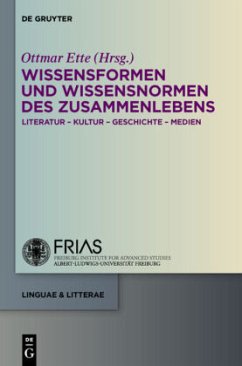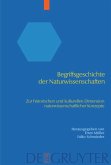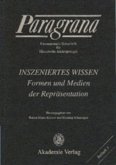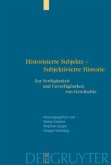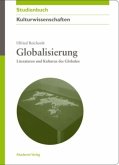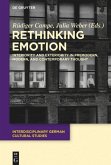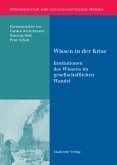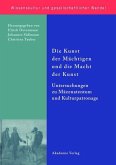The purpose of the essays collected in this volume is to advance the discussion about "life knowledge" (Lebenswissen) and to point the way toward new horizons for current and future thinking and action in literary and cultural studies. This broad research field encompasses a wide range of elements: European, non-European, philological, and philosophical approaches; perspectives native to media history, narrative theory, and the aesthetics of literature; as well as transcultural and transdisciplinary methods. Clearly, "life knowledge" is a field of research whose forms and norms of knowledge remain to be more precisely elucidated.
Die Debatte um die Frage nach dem Lebenswissen hat weiter an Fahrt aufgenommen, seitdem der Begriff im Jahr 2007 von Ottmar Ette in die kulturwissenschaftliche Diskussion eingeführt wurde. Die im vorliegenden Band versammelten Beiträge versuchen, diese Diskussion entscheidend voranzutreiben und neue Horizonte aktuellen wie künftigen literatur- und kulturwissenschaftlichen Denkens und Handelns aufzuzeigen. Der Band geht auf ein internationales Symposium zurück, das im Juli 2010 am Freiburg Institute for Advanced Studies stattfand. Der Stil wissenschaftlicher Konvivenz, der bei diesem Symposium geschaffen wurde, kommt in allen hier versammelten Texten zum Ausdruck. Europäische wie außereuropäische, philologische wie philosophische, fachgeschichtliche wie medienhistorische, erzähltheoretische wie literarästhetische, transkulturelle wie transdisziplinäre Ansätze messen die Dimensionen eines Forschungsgebietes aus, dessen Wissensformen und Wissensnormen es selbst noch näher zu bestimmen gilt. Dieser Herausforderung ist der Band verpflichtet.
Die Debatte um die Frage nach dem Lebenswissen hat weiter an Fahrt aufgenommen, seitdem der Begriff im Jahr 2007 von Ottmar Ette in die kulturwissenschaftliche Diskussion eingeführt wurde. Die im vorliegenden Band versammelten Beiträge versuchen, diese Diskussion entscheidend voranzutreiben und neue Horizonte aktuellen wie künftigen literatur- und kulturwissenschaftlichen Denkens und Handelns aufzuzeigen. Der Band geht auf ein internationales Symposium zurück, das im Juli 2010 am Freiburg Institute for Advanced Studies stattfand. Der Stil wissenschaftlicher Konvivenz, der bei diesem Symposium geschaffen wurde, kommt in allen hier versammelten Texten zum Ausdruck. Europäische wie außereuropäische, philologische wie philosophische, fachgeschichtliche wie medienhistorische, erzähltheoretische wie literarästhetische, transkulturelle wie transdisziplinäre Ansätze messen die Dimensionen eines Forschungsgebietes aus, dessen Wissensformen und Wissensnormen es selbst noch näher zu bestimmen gilt. Dieser Herausforderung ist der Band verpflichtet.

